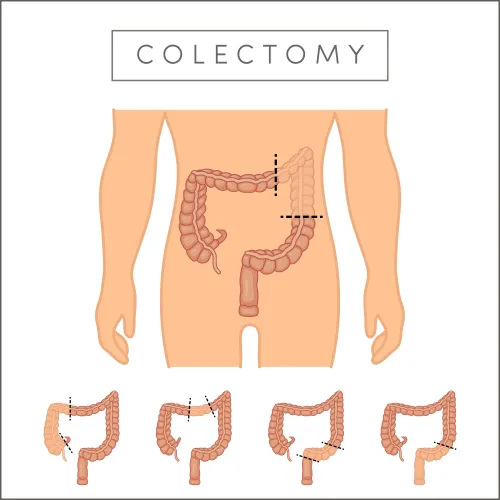Bust These Myths to End Global Period Perplexities
Check out the handy memory aid for when to use modifier 78. Global periods can cause confusion among coders for a variety of reasons. What services are included in the period, the timing of those services, and which modifiers to use (if any), are just a few of the things that can easily lead to misconceptions and inaccurate coding. Follow along as we set the record straight on three myths related to post-operative periods. Myth 1: If there is a related E/M service on any day leading up to a procedure, the E/M is bundled as part of the surgical package. The CPT® surgery guidelines state that the surgical package includes one related evaluation and management (E/M) encounter on the date immediately prior to or on the date of the procedure. The word “date” in this instruction is what trips coders up. CPT® means literally on the calendar date prior to or on the date prior to the procedure. A day earlier in the same week is not the “date immediately prior.” Another thing to keep in mind is the word “related.” In this situation, the E/M not only needs to be on the day prior to or the day of the surgery, it also needs to be directly related to the procedure. For example, let’s say a patient who’s been suffering abdominal pain comes in on a Monday for a follow-up visit to discuss the results of an ultrasound. The physician confirms the patient has gallstones and schedules a laparoscopic cholecystectomy for the following day. On Tuesday, the physician meets with the patient prior to the procedure to review the procedure, obtain consent, and answer any last-minute questions. In this case, the same-day E/M is bundled with the procedure, but the E/M from Monday’s ultrasound follow-up is not. If that same-day E/M never occurred, you would still not bundle Monday’s E/M with the cholecystectomy. While related to the diagnosis and done on the date prior to a procedure, that visit was not related to the cholecystectomy. Rather, it was related to the ultrasound, which is why it is not bundled. Exception: While a cholecystectomy is a major surgery, if you’re dealing with a minor procedure instead, you might be able to bill for a second E/M on the day of the procedure if the documentation supports it as a separate, significant E/M service. For example, the surgeon may identify a previously undiagnosed problem that requires separate evaluation and documentation. In this scenario, you’d append modifier 25 (Significant, separately identifiable evaluation and management service by the same physician or other qualified health care professional on the same day of the procedure or other service). Myth 2: When the provider examines a patient within the 90-day global period of a major procedure, but the problem is not related to that procedure, you should append modifier 25. Modifier 25 is not appropriate in this situation. Instead, you would append modifier 24 (Unrelated evaluation and management service by the same physician during a postoperative period). For example, suppose the physician performs an internal hemorrhoid destruction using cautery reported with 46930 (Destruction of internal hemorrhoid(s) by thermal energy (eg, infrared coagulation, cautery, radiofrequency). This procedure carries a 90-day global period. A month later, the same doctor sees the patient for a stomach problem. That is a situation that calls for modifier 24. “Modifier 24 tells the payer, ‘Yes, the service was rendered during this patient’s global period, but it’s not related. It has nothing to do with that surgery,’” said NGS Medicare’s Nathan Kennedy during the Part B payer’s May 12 webinar, “Medicare Global Surgery Policy.” Keep in mind though, that whenever you report modifier 24, the E/M service must meet these criteria: Remember: Medicare and many other payers have very specific guidelines for what qualifies as “related” to the original procedure and what doesn’t. For instance, Medicare will always treat postoperative infections as related to (and therefore, included in the global surgical package of) the initial surgery — unless your gastroenterologist must return the patient to the operating room to deal with an infection. Modifier 24 should only be used when the subsequent E/M service is unrelated to the original procedure. Myth 3: Append modifier 78 when the gastroenterologist performs an unplanned, but related, procedure at the bedside or in the office, and that procedure occurs within the global period of another procedure. This is a myth, and the reason why has everything to do with where the procedure was performed. Although every GI physician strives to perform the fewest invasive procedures possible, sometimes it’s necessary to perform additional procedures during the postoperative period of a surgery. While modifier 78 (Unplanned return to the operating/ procedure room by the same physician or other qualified health care professional following initial procedure for a related procedure during the postoperative period) is appropriate for unplanned procedures that fall within the global period of another, the surgery needs to take place in the operating room (OR) to qualify for reimbursement. While not common, it’s not unheard of for the provider to perform the unplanned procedure bedside or in the office, and when that happens it could possibly be considered part of the original service, if the two are related. Remember these reimbursement criteria: You’ll use modifier 78 when the same surgeon, or a surgeon in the same practice and specialty, returns a patient to surgery and the surgery meets the following criteria: Memory aid: “I use the rhyme 78-relate, and that pretty much says it all,” explains Suzan Hauptman, MPM, CPC, CEMC, CEDC, director compliance audit at Cancer Treatment Centers of America. Just remember that the unplanned return not only has to relate to the original procedure, it also needs to require a trip to the OR. Note: If the two procedures are not related, you’ll need to turn to modifier 79 (Unrelated procedure or service by the same physician or other qualified health care professional during the postoperative period). Setting is not a factor for this modifier in this situation.





